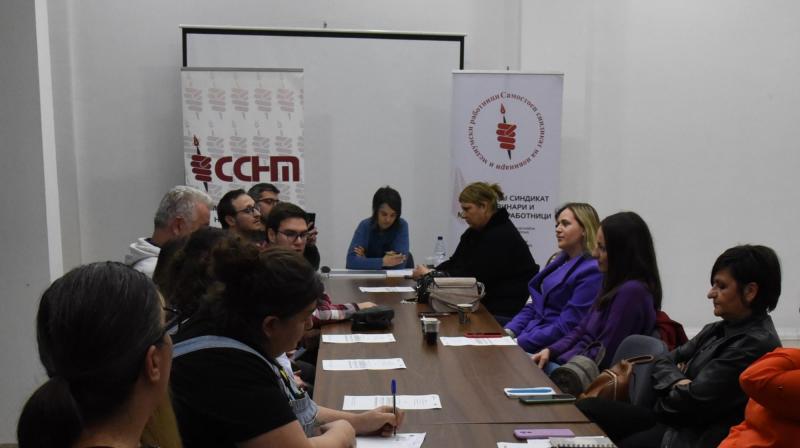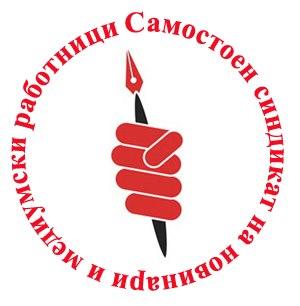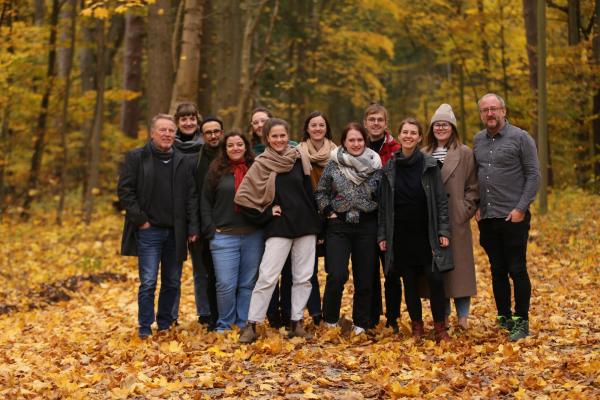This project was implemented to strengthen the environmental reporting which so far has not been a priority in North Macedonia, despite the fact that there are urgent issues to tackle related to the environment and public health.
The training opportunity also gave journalists a better understanding of the threats they are likely to face and what they can do to protect themselves while reporting on environmental issues.
The first training titled “What is happening with the climate and why that is important for journalists?” was held on November 4 and 5, 2023, and the second one a week later, on November 11 and 12, 2023.
The workshops were delivered in a mix of trainer-led presentations and group discussions. All sessions were led by Kevin Burden, a UK-based former environment correspondent and now specialist trainer in reporting climate change, who has delivered training for organisations including the BBC, Aljazeera, International Federation of Journalists and the Conference of Mediterranean Broadcasters (COPEAM).
Sixteen participants were selected on the basis of their ability to benefit from taking part in the activities. They were also required to have a good working knowledge of English. There was a good gender balance, mix of ages and ethnic background, with first speakers of Macedonian, Albanian and Turkish all represented. Some participants were very experienced journalists, whereas others were at the start of their careers.
The content of the workshop was devised to give participants a good grounding in climate science and policy, so that they are better able in future to identify and explain the climate change dimension of a wide variety of news stories, including extreme and changing weather; the impacts upon the natural environment, food and farming; global plans to reduce the scale and impacts of climate change and Macedonia’s part in those plans, especially including the impact upon citizens, businesses and public sector services including health, education, energy and transport.
Day 1:
• What on Earth is happening to our climate?
• Why aren’t we treating it like the crisis it is?
• What is our responsibility as journalists?
• Barriers to reporting on climate change and the environment and how to overcome them
• Climate science and policy
• Where to find climate stories and how to develop them
Some of the most vocal participation came from those who were sceptical of climate change or of expectations upon Macedonia – a middle-income country which has per capita carbon emissions well below the European average – to take steps to reduce its emissions, perhaps at the cost of jobs and the economy. These are well-founded criticisms and raising them helped to foster a proper and lively debate.
Day 2:
• Understanding science and scientists
• Contacts, campaigns and campaigners: identifying reliable sources of climate information
• Story showcase: reviewing local reports of environmental issues
• Recap and quiz: climate jargon
Guest speakers on day 2:
- Frosina Panduska, Macedonian Ecological Society, who had worked for five years as a journalist before joining a conservation organisation. This gave her a valuable understanding and also a point of connection with the participants. She shared a comprehensive picture of conservation action in Macedonia and across borders.
- Elmedina Abdullahi, from Mother and Child Society, had mounted a campaign against a polluting factory in Tetovo and ultimately prevented it from discharging untreated emissions into the air. Her story demonstrated that there is value in empowering citizens to take action, and that such action can be successful. This message was very effective in countering the feeling of resignation about any action to tackle climate change, pollution, and loss of habitat.
Overall, the workshops helped the participants work through important issues that journalists have to be familiar with when reporting on environment and climate change as:
-
Identify their personal and professional challenges to reporting on the environment
-
Start to work up appropriate strategies for overcoming these challenges
-
Identify potential story ideas
-
Examine successful story treatments and use these to develop treatments for story ideas suggested by the participants
-
Identify why it can be particularly challenging to report on science and to communicate with scientists, and give some knowledge and skills to overcome these problems.


